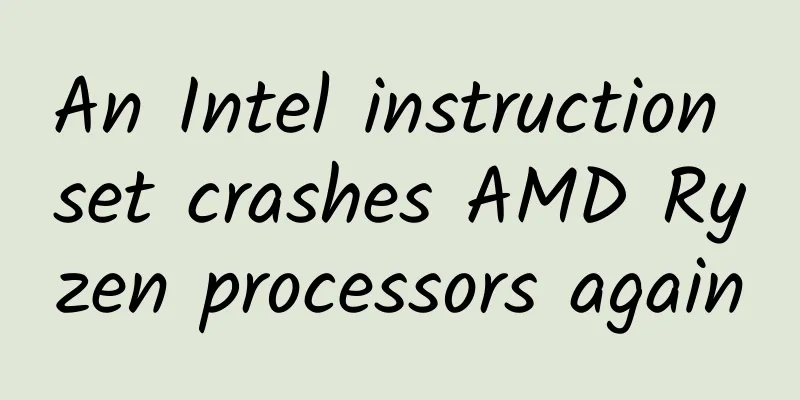The new generation of artificial intelligence development plan was promulgated, and my country's AI industry will accelerate its catch-up with international standards

|
2016 can be said to be the year of the explosion of artificial intelligence and machine learning. However, after entering 2017, we have witnessed more surprises from the development of the industry. MIT Technology Review once published a forecast for the development of artificial intelligence in 2017, mentioning that in terms of technology, reinforcement learning and generative adversarial networks will be used, and in terms of application, speech recognition will be emphasized. Now that the year is half over, these predictions seem to have come true one by one. Scientific planning to seize the development opportunities of the industry The leap in technology makes the trend of the industry more prominent. And Chinese technology companies are gradually no longer constrained by relying on "copying" advanced overseas concepts and technologies to enhance their core competitiveness in the market, but are more actively starting to stride forward towards independent research and development of artificial intelligence. Investors in China are now paying close attention to startups in the field of artificial intelligence and spending a lot of money. The Chinese government has also sent a strong signal, not only promising to invest $15 billion by 2018 to promote the development of the field of artificial intelligence. Recently, the State Council also issued the "New Generation Artificial Intelligence Development Plan", which puts forward the guiding ideology, strategic goals, key tasks and guarantee measures for the development of China's new generation of artificial intelligence by 2030, and deploys to build China's first-mover advantage in the development of artificial intelligence. The plan proposes that by 2020, the overall technology and application of artificial intelligence will be synchronized with the world's advanced level, and the artificial intelligence industry will become a new important economic growth point. By 2025, the basic theory of artificial intelligence will achieve a major breakthrough, and some technologies and applications will reach the world's leading level. Artificial intelligence will also become the main driving force for China's industrial upgrading and economic transformation. By 2030, artificial intelligence theory, technology and application will generally reach the world's leading level and become the world's major artificial intelligence innovation center. Business model fills the technology gap AI accelerator becomes the first choice for complementary advantages. China's "Internet +" Artificial Intelligence Three-Year Action Plan" proposes to form an artificial intelligence industry application scale of 100 billion yuan in 2018. The technology layer and application layer are the main investment directions of the secondary market in the future. As a combination of artificial intelligence and downstream industries, the application layer has the largest development space. Although domestic artificial intelligence-related technologies are still lagging behind the West, the potential for commercial applications is also huge. There is even a view that China may become the main force in the artificial intelligence industry this year. According to authoritative organizations, the global AI market will reach 119 billion yuan by 2020, with a compound annual growth rate of about 19.7%; during the same period, the scale of China's artificial intelligence market will reach 9.1 billion yuan, with a compound annual growth rate of more than 50%, far exceeding the global growth rate. As an emerging technology, artificial intelligence has high requirements for technology, resources, and talents, so it is generally led by leading companies such as Google. Compared with China, although my country has made qualitative progress in the underlying computer architecture, intelligent hardware, and layer software applications in the field of artificial intelligence, it still has a gap with Western countries in overall technology. Therefore, the domestic related commercialization path planning still needs to learn from foreign industrial policy guidance and successful business models of enterprises in order to form industrial development. The plan released this time proposes that one of them is to build an open and collaborative artificial intelligence science and technology innovation system, and strengthen deployment from the aspects of cutting-edge basic theories, key common technologies, innovation platforms, and high-end talent teams. Secondly, cultivating a high-end and efficient intelligent economy, developing emerging industries of artificial intelligence, prospectively deploying major scientific and technological projects, and coordinating the current and future R&D task layout of artificial intelligence project groups are all key tasks for future development. As one of the 10 Chinese companies that made the latest Fortune Global 500 list for the first time, Tencent has also officially launched its AI accelerator recently. After a three-month selection process of thousands of AI startup projects, 25 projects were officially selected. These projects will begin a six-month acceleration period, accelerating their growth with full funding from technology, resources, mentors, and the market. Just a week ago, Tencent completed the selection of American AI startup teams in Boston, and the winning teams will soon move into the Tencent AI accelerator to communicate with domestic AI entrepreneurs. Tencent's "internal and external integration" dual-line ecological construction model will use the AI accelerator as a bridge to connect its internal capabilities with industry partners, thereby promoting "smart changes" between industries and avoiding "trend-oriented" hype. Although the current AI startup trend has arrived. However, as startups, there are generally various deficiencies from technology to application, insufficient technical depth and coverage, lack of market awareness, and funding shortages. We will see a large number of startups with inflated valuations die and the source of investment is drying up. In the face of industry pain points, the AI accelerator opens up corporate capabilities to provide professional technical teams with multi-faceted support including AI technology, mentors, industry resources, markets, and investment. This not only helps AI technology and products find application scenarios, but also accelerates the development of related industries in my country to keep pace with international standards from an industry perspective. As a winner of Toutiao's Qingyun Plan and Baijiahao's Bai+ Plan, the 2019 Baidu Digital Author of the Year, the Baijiahao's Most Popular Author in the Technology Field, the 2019 Sogou Technology and Culture Author, and the 2021 Baijiahao Quarterly Influential Creator, he has won many awards, including the 2013 Sohu Best Industry Media Person, the 2015 China New Media Entrepreneurship Competition Beijing Third Place, the 2015 Guangmang Experience Award, the 2015 China New Media Entrepreneurship Competition Finals Third Place, and the 2018 Baidu Dynamic Annual Powerful Celebrity. |
>>: SUV sales hit a 7-year low, electric SUV may be the best tool to break the deadlock
Recommend
How to promote Tik Tok? What are the channels for promoting Tik Tok?
How to promote Tik Tok ? What are the channels fo...
Copywriting for Beginners: 5 Key Steps to Copywriting
When I was interviewing senior operations candida...
Silicon Valley Elite's Entrepreneurial Secrets
About the author of Silicon Valley Elite's En...
Quark College Entrance Examination Information Service upgrades AI search capabilities to help candidates choose their preferred choices
In the 2024 college entrance examination, not onl...
The 2022 Ig Nobel Prizes are announced! Two awards were won by Chinese teams
At 6 p.m. on September 15, Eastern Time, the 32nd...
Is it expensive to produce the Honghe Furniture Mini Program? Red River Furniture Mini Program Production Cost
There is no doubt that the topic of mini programs...
Many breast cancers are discovered in the late stages. Is it really too late? You need to know these coping strategies!
Author: Song Guohong, Chief Physician, Peking Uni...
Weiku 0 basics fun to learn SEO, detonate traffic, let customers actively come to your door to make money without doing anything
Han Shen's "Learn SEO with zero basic kn...
E-commerce game design and planning methods (Part 1)
The era of content-based e-commerce has quietly a...
Two poisons in one! Delta Chron variant confirmed for the first time
According to the latest report from the National ...
China Passenger Car Association & Core Consulting: July 2023 Intelligent Connected Vehicle Insight Report
Trends in China's New Energy Vehicle Market C...
From JD.com to Xiaomi, from B2B to B2C, my ten strategies for Internet operations
01 In everything we do, "putting it into pra...
Which Baidu Aicaigou platform performs well?
As one of the largest search engines, Baidu has a...
Can the MiniStation, a microconsole capable of playing mobile games jointly developed by Tencent and Skyworth, reverse the plight of Android consoles in China?
As a nationally, no, globally renowned gaming gia...
JSPatch – Dynamically update iOS apps
[[139654]] JSPatch is a recent amateur project. B...









